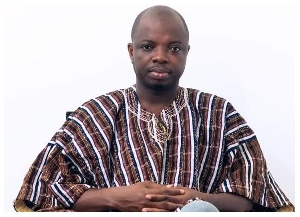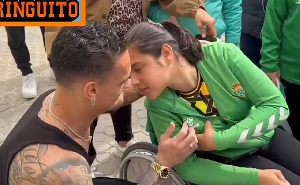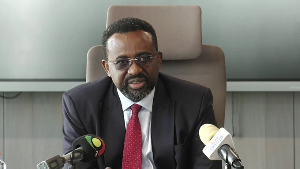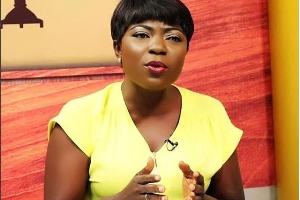By John Amponsah
Democratic systems of participatory government can be seen as non-trivial games in which real lives are affected. There are different kinds of games. Football is an example of a highly popular and enjoyable game which has a massive following. Yet in football the spectators lend their support to the players without actually affecting the outcome of the game. This is not the case in the game of democratic governance, where active participation on the part of the commoner can significantly influence the outcome of the game.
“BUGA-BUGA” POLITICS SHOULD BE SHUNNED
The above analogy has the purpose of highlighting the essential nature of participation of all concerned parties in the game of democratic governance. It is important for each one of us to realise our place and role in this non-trivial game. It is especially important after recent events involving players from NDC and NPP camps. Everyone knows the general story at this point: the biometric registration exercise led to “buga-buga” politics culminating in the NDC Odododiodio affair and its subsequent reaction of “intemperate words” from a member of the NPP camp. Tempers flared, emotions roused, old tribal prejudices heightened, senior political figures became involved and the whole affair reached a higher tempo.
In the midst of all this, what is the place and role of the electorate, the common man and woman? Unlike football, democratic governance is (or should be) participatory in nature. The electorate are not meant to be spectators standing at the sidelines and simply cheering. This is why both NPP and NDC camps have each tried to call on the masses to get involved in this “buga-buga” political affair. Each individual in this game of democratic governance has some power, whether you are a member of law enforcement, the business community, a trader, a politician, an artisan or whatever role you play in society. Each one of us has a potential role to play in participatory governance.
As commoners, what are we expected to do when the main players in the two political parties (NDC and NPP) take competition to its limits and start going desperate with “intemperate” deeds and words? Are we going to follow them into mayhem? Stop and think for a second. Who has the real power? How many of us know where the real power lies? Politicians have no real power. Governments have no real or inherent power. “The State” has no real or inherent power. “The People” have the ultimate power. Look what happened in the Arab Spring event. One man set himself ablaze and the entire region went into meltdown. A trigger event occurred and “The People” acted in concert. Four heads of states were deposed, one fled, one stayed and got caught in the tentacles of the law, one fought his way to his death and one cut a deal to leave under certain conditions. Before these events came to pass, who could ever have imagined that such a thing could take place? People power!
If the two major political parties of our country decide to quarrel amongst themselves and the vast majority of us pull out of this quarrel, what do you think will happen?
We have to be smart about this. The division of power is not the same in this game of democratic governance. Successful politicians get a much larger slice of power than the layman with one vote. But the layman (or laywoman) with one vote acting in concert with all the other laymen and laywomen has the potential to change the game. Gandhi did it. Martin Luther King did it. Those demonstrators in the Arab Spring have done it.
We should not follow our politicians into mayhem and potential self-destruction resulting from desperate “buga-buga” politics. Acting together, the plebs (the common people) have more power than any government or political movement. We need to explore ways to apply this power.
First we need to identify the referees of this political game and to petition these referees to act on everyone’s behalf. Who are the referees? In this political game of democratic governance, refereeing should be played by a neutral law enforcement and judiciary system which owes its allegiance to “The People”. These two bodies owe it to “The People” to maintain sanity among the players on the political scene. In our Ghanaian context, this refereeing role should also be played by the religious and traditional bodies of the land who can act to call politicians to book. These can be helped by an independent press and neutral civil society pressure groups.
So Vanderpuye goes nuts in Odododiodio and Kennedy Agyapong with dangerous utterances calls on the masses to retaliate in words that were rightfully condemned. Just today (23rd April 2012) the vice president of the Republic called the on masses to condemn Agyapong in response to Kufuor’s statements. Explanation --- Party players in both camps know that without the support of “The People”, there will be no game. In this political game, without “people power” there is no political power and hence no “state power”!
My fellow country men and women, you have the power. Don’t throw it away! Don’t lose your mind, don’t poison your heart. We all want the same thing for our nation. We all want progress. We all want our people to reach a better place.
I hope NDC and NPP will listen to the referees. I hope they will listen to the National House of Chiefs. I hope they will listen to the religious leaders. I hope they will listen to us “The People”. We don’t want violence. We want PEACE!
PEOPLE POWER: ORGANISING A “GARGANTUAN CARNIVAL OF PEACE”
“The People” must get the referees to act! Let us get the religious leaders involved. Let us get the chiefs involved. These are the referees. In addition, let us get the peace activists, movie stars, poets and gospel bands etc involved and of course we cannot leave out progressive politicians who preach and walk the path of peace. Bring out the peaceful “Jama” squads, the brass bands, the vuvuzelas! Let us make some noise in celebration of peace! Let it span all regions of the country. From Gambaga to Accra, from Wiawso to Keta (many of us should know where this line comes from), leave no city, town or village out of the celebrations. Let us sing peace throughout the country! Every man, woman and child must sing it. If we can show our ugly side to ourselves and to the world, we can also show our beautiful side to the same.
Let us throw a “Gargantuan Carnival of Peace” in anticipation of our 2012 elections. This will be a fine way for everyone to be actively involved in this process, not just by voting on Election Day. Let us do it on a scale that has never been done in an African country in recent times (perhaps since the Apartheid era) and let it be an example to other African countries.
This is one concrete way “The People” can express their power and solidarity with peace. On this occasion, in place of ‘Akatamanso’ and ‘Kukrudu’ slogans and flags, let us have “Ghana First” slogans that emphasize our unity as one nation. Fly the Ghanaian flag everywhere! Let us petition the police forces to be on our side so that any usurpers or infiltrators bent on spreading chaos and discord will be apprehended and taken away from these peaceful celebrations. Let us invite local and international media and other observers and if possible let us also have some important international personalities at the various rally locations around the country to observe our “Garganguan Carnival of Peace”.
This is a call to the organs of civil society. There are those of us out there who know how to make this happen and who have experience organising events. Start speaking with each other. The December 2012 elections can be a make-or-break event for our democracy. We “The People” need to make sure that the game is played fairly by the political players with the right spirit of peace from the plebs, no “buga-buga” and no cheating! I propose that the rally occur sometime between now and World Peace Day on Friday 21st September 2012. Of course a “Gargantuan Carnival of Peace” can be turned into a weekend long event starting on World Peace Day. It may however prove more effective to have the event earlier, perhaps sometime this summer.
No need to wait until the carnival. We should already start talking peace amongst ourselves starting now until election season and afterward. Let us aim to involve about half the number of voters from the 2008 elections (about 4 million Ghanaians) spread out across the country. This will be a truly great and unprecedented event in the history of our country and of the continent. Let us once again take up that position of first among peers.
The vibration of a successful “Garganguan Carnival of Peace” will send out a powerful message indeed. Political parties in the country will have little choice but to join in. Those who do not join in will be sidelined. It will not serve their interests to go against a message of peace. Any parties that preach violence and intimidation will be hurting their own chances of winning the election.
So let us give the election process a chance. Let the political game continue but let us be vigilant!
TO CONCLUDE
Fellow country men and women, “buga-buga” politics will not do us any good. We have to restrain our hearts with our minds and our minds with our hearts. All heart and no mind is no good however all mind and no heart is just as bad. The two must go together. The two must temper one another. Let the mind guide the heart, let the heart guide the mind. Remember that as a nation we all want the same thing. Do not lose your mind, do not poison your heart. There is no need to act rashly and irresponsibly to the detriment of us all. Political parties should be competitive in a just and upright manner. Let us reach our destination collectively, without destroying each other.
Opinions of Wednesday, 25 April 2012
Columnist: Amponsah, John


















